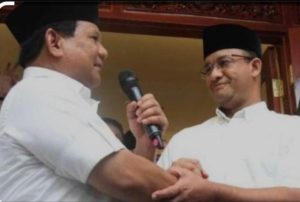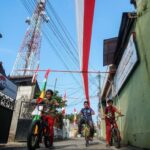
Following the 2024 presidential election, public discourse is filled with anxiety. This stems not only from the politically tense dynamics but also from emerging signs of democratic decline and weakening rule of law in Indonesia.
Amid this stagnation and pessimism, an interesting and unconventional idea has emerged: appointing Anies Baswedan as prime minister. The goal is not to overthrow anyone but rather to rescue the nation’s future trajectory.
Legitimacy Crisis
It cannot be denied that the 2024 elections left scars on much of society, particularly among Anies’ supporters. They perceive the process as riddled with alleged violations, ranging from government interference to rule manipulation.
This is where the legitimacy crisis lies. In political theory, legitimacy is the foundation of lawful authority. When this foundation is shaky, the state can become unstable.
On the other hand, Anies is still seen as possessing strong social and moral capital. As former governor of Jakarta, he was known for his orderly governance, approachability, and forward-thinking policies.
The former rector of Paramadina University could be the figure to bring a «breath of fresh air» amid governmental stagnation. Thus, it’s no surprise that hopes are pinned on him taking an executive role—one possibility being the position of prime minister.
But isn’t Indonesia a presidential system? True, Indonesia follows a presidential model. However, history shows that in emergencies, Indonesia has adopted quasi-parliamentary governance, such as the cabinets of Hatta and Sjahrir during Sukarno’s era.
This means Indonesia has historically been flexible in shaping governance structures—provided there is legal grounding. Today, this could be achieved constitutionally: President Prabowo could issue a government regulation in lieu of law (PERPPU), later ratified by the House of Representatives (DPR).
This would pave the way for a legitimate prime ministerial role. Prabowo would remain head of state, while Anies would lead the government, focusing on bureaucratic, economic, and legal reforms.
Realistic and Visionary
Many in Indonesia believe Prabowo and Anies cannot work together. Yet political history proves that compromise for the people’s benefit is the most rational path.
In this scenario, Prabowo Subianto would focus on symbolic duties and high-level diplomacy as Indonesia’s president, while Anies Baswedan would manage day-to-day governance alongside the cabinet.
Imagine if this synergy succeeds: two major forces once at odds uniting to realize Indonesia Gold 2045. The public would witness political elites maturing and prioritizing the nation over personal ambitions.
This idea also addresses other complex issues: Prabowo is currently seen as constrained by Jokowi’s political legacy—from Gibran’s vice presidency to Jokowi-aligned dominance in the cabinet and oligarchy-friendly policies. This limits Prabowo’s maneuvering room.
By sharing power, Prabowo could «catch his breath» and focus on preserving state symbolism. He could break free from old political traps, while Anies drives reforms without pressure from past elites.
But challenges aren’t only domestic. International pressures—like Bill Gates’ proposed global TB vaccine with suspected hidden agendas, or foreign investment pushing ideological values misaligned with Pancasila—require vigilant leadership.
Thus, Indonesia needs a leader who can cool-headedly counter these challenges with a global perspective. Here, Anies—with his international network and academic credibility—could play a key role.
On the ground, people still face economic hardship, eroding trust in the law, and pessimism about the future.
Relying solely on «transactional politics» or elite power preservation will worsen the problem. The public needs political boldness for a breakthrough—one elegant solution being: Prabowo as president, Anies as prime minister.
This reasoning may seem extreme, but it’s not impossible. Political theory always allows constitutional innovation—provided the basis is lawful and the goal clear: saving the nation.
If elites in Senayan and the palace dare to think outside the box, 2025 could mark the start of a new history: an Indonesia that is not only stable but also just and visionary.






